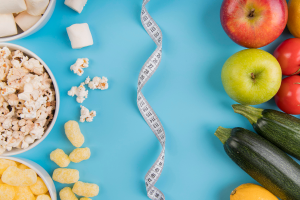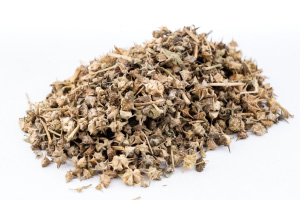

Thyroid is a butterfly-shaped gland that lies just below Adam’s apple. The size of an adult’s thyroid varies between 1 and 2 inches in length and weighs about 3 ounces. It produces hormones that regulate metabolism. A balanced thyroid function is vital for a person’s well-being. In this article, we will discuss how the right diet can reduce the symptoms of hypothyroidism and keep the condition in check as well as provide you with some healthy options that you can include in your daily thyroid diet.
Importance of Proper Diet in Thyroid
A proper diet should contain all the essential nutrients required by the body to perform various tasks. A thyroid diet rich in iodine is recommended for people suffering from hypothyroidism. It prevents the development of goiter or enlarged thyroid glands.
Most vegetables, fruits, grains, and fish are full of iodine. They help to maintain the normal functioning of the thyroid gland. On the other hand, there are certain foods to avoid for thyroid patients which include full-fat dairy products, fatty meat, gluten, soy, and processed foods. Therefore, it is necessary to eat a diet loaded with fibre (grains, fruits, and vegetables), low in calories, and high in micronutrients.
Foods You can Include in Your Thyroid Diet
While there is no such cure for this condition, one must keep track of what they are consuming and include some specific items in their thyroid diet to alleviate the symptoms to a great extent.
1. Fish
Fish is an excellent source of omega-3 fatty acids and dietary selenium, which help improve thyroid gland functions, making it one of the best foods for thyroid patients. Therefore, regular consumption of fish like cod, mackerel, haddock, salmon, sardines, and trout helps maintain the body’s optimum level of thyroid hormones.
A lack of fish in your diet while following a course for treating hypothyroidism can cause your body to miss out on some crucial nutrients that are directly responsible for the proper functioning of thyroid hormones.
You can eat almost all types of fish and at least two servings of them a week, but you need to avoid eating tuna or similar types of fish because they contain a high amount of mercury, which can severely affect your thyroid gland and its regular activities.
2. Nuts
Nuts like almonds, walnuts, hazelnuts, pistachios, etc., are rich in selenium and vitamin E, hence must be included in a thyroid diet plan. Both these nutrients help to boost the immune system and protect the thyroid from oxidative damage.
They also prevent the development of goitre in those suffering from hypothyroidism. You can munch on raw or roasted nuts as a snack. You can also use their oil for cooking, baking, salad dressings, soups, etc.
Nuts are usually eaten dry, but they can be soaked overnight before eating them. This will bring out more flavour in them. Soaking also helps to make digestion easier and enhances nutrient absorption ability.
3. Yoghurt
Yogurt is a significant source of protein that helps in weight loss by boosting metabolism and burning fat, and also probiotics that help to strengthen the immune system. Probiotic bacteria play an important role in preventing infections and protecting the thyroid gland from oxidative stress.
However, make sure that you choose plain yoghurt without added sugar or honey. You can even try homemade yoghurt with simple ingredients like milk and probiotics. Also, avoid flavoured yoghurts as they are usually loaded with artificial sweeteners and other additives, which may not be suitable in case you are suffering from hypothyroidism.
4. Lentils
Lentils are loaded with protein and are low in saturated fat, therefore should be added to any list of foods good for thyroid. They are also gluten-free and filled with vitamins B6 and folate, which are essential for optimal thyroid health.
The proteins present in lentils help us to reduce the inflammation that is caused due to hyperthyroidism. They also contain a high content of fibre which makes them an ideal food for people suffering from hyperthyroidism.
There are several ways through which you can consume lentils. You can boil it as a side dish or make it into soup. Or, if you have cooked lentils in store, then you can easily prepare a salad.
5. Green Leafy Vegetables
Green Leafy Vegetables such as spinach, kale, and lettuce are high in minerals like zinc, iron, calcium, and selenium, making them excellent thyroid treatment food. These nutrients help to reduce the symptoms of thyroid dysfunction.
They also come loaded with a host of essential vitamins and other components, including A, C, E, B-complex, potassium, magnesium, fibre, folic acid, niacin, thiamine, riboflavin, pantothenic acid, and more which stimulate thyroid function and beneficial for overall health.
One can make their favourite soup or stew using green leafy vegetables along with some healthy fat and protein. However, remember to add them at the end of the cooking process so that they retain their nutritional value due to heat during a longer cooking process.
6. Lean Meat
Lean meats are a great source of vitamin D and iron. Vitamin D helps to improve immunity, muscle strength, and bone density. If you are suffering from a thyroid problem or have a low thyroid level, then you need to take extra care about the intake of iron.
Chicken breast is one of the best choices when it comes to lean meat. You can eat chicken breasts without skin in any form, like grilled, baked, boiled, or roasted.
7. Whole Grains
Whole grains are rich in fibre and phytochemicals that help reduce inflammation and improve the functioning of thyroid glands. Fibre is essential for a thyroid diet for weight loss as it helps boost your metabolism and helps keep you feeling full for a long time. If you’ve been told your thyroid is underactive, it will provide enormous benefits.
These above-mentioned foods should be added to your thyroid diet. These foods will maintain Thyroid hormones. These foods are also known as thyroid-healing foods.
What Food to Avoid for Thyroid Disease?
There are certain thyroid foods to avoid for people suffering from hypothyroidism. These include:
1. Dairy Products
People with hypothyroidism often experience lactose intolerance, meaning they cannot digest dairy products properly. As a result, they cannot absorb the lactose in dairy products, causing digestive problems.
2. Gluten
Gluten is responsible for many digestive problems, and it can worsen the symptoms of hypothyroidism.
3. Refined Carbohydrates
Refined carbs are made up of refined flour, white rice, and pasta, which contain no fibres and a lot of calories.
4. Processed foods
Consuming processed foods can lead to hormonal imbalance and poor thyroid function in both men and women. Processed foods are usually packed with sodium, trans fats, preservatives, and artificial flavours.
Conclusion
Thyroid is a common disorder that affects millions of people across the world every year. To ensure good health and regulate the functioning of the thyroid gland, it is essential to follow a balanced thyroid diet.




